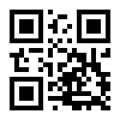

Insulating glass thickness gauge manufacturers: problems and causes that are likely to occur in the performance testing of insulating glass
- Categories:News
- Time of issue:2022-06-14 14:01
- Views:
(Summary description)Maybe you know how to choose insulating glass, but do you know how the performance test of insulating glass is carried out? At present, there are 5 cases of performance testing of insulating glass at this stage, including initial dew point, sealing, ultraviolet irradiation, high temperature and high humidity and climate cycle . The following insulating glass thickness gauge manufacturers share the common problems and causes in the performance testing of insulating glass.
Insulating glass thickness gauge manufacturers: problems and causes that are likely to occur in the performance testing of insulating glass
- Categories:News
- Time of issue:2022-06-14 14:01
- Views:
Maybe you know how to choose insulating glass, but do you know how the performance test of insulating glass is carried out? At present, there are 5 cases of performance testing of insulating glass at this stage. , for initial dew point, sealing, UV exposure, high temperature and high humidity and climatic cycles. The following insulating glass thickness gauge manufacturers share the common problems and causes in the performance testing of insulating glass.
Initial dew point. Whether the air in the insulating glass is dry, the national standard stipulates that the dew point below -400 is qualified. If the inspection fails, it may be because the molecular sieve in use is unqualified or invalid, the air humidity in the production workshop is too high, or the aluminum box cannot be assembled in time after the molecular sieve is loaded, and the molecular sieve absorption is invalid due to too long time.
Seal check. Used to test the softness and leakage of insulating glass sealants. The sample is qualified if the ambient air pressure is below 10± 0.5KPa, kept for 2.5h, and the thickness increase deviation is less than 15%. If the inspection fails, the manufacturer believes that it may be caused by the negligence of the staff, resulting in poor sealant sealing, uneven sealant mixing, inaccurate metering, sealant curing, or the width of the sealant is too narrow.
UV survey. Check whether the main test insulating glass sealant contains organic volatiles that affect sight. After the insulating glass sample was continuously irradiated by a 300W ultraviolet lamp for 168 hours, it was stored at a temperature of 23℃± 2℃ for a week. There should be no fog, oil or other contaminants on the inner surface of the insulating glass. The manufacturer of the insulating glass thickness gauge believes that if the inspection fails, it may be because the organic volatile content of the sealant is too high, or the aluminum strip has not been decontaminated.
High temperature and high humidity experiment. The main test is whether the adhesion of the sealant, the water vapor transmission rate and the effective adsorption capacity of the molecular sieve meet the standard requirements. The samples were subjected to 224 cycles under the experimental conditions of high temperature and high humidity (humidity above 95% and temperature changing regularly between 25 and 55). The gas in each cycle of the insulating glass has to undergo one expansion and contraction, which requires high adhesion of the sealant. In addition, due to high humidity, the water vapor transmittance of the sealant is low, and the molecular sieve adsorption force is strong.
Frequent problems during inspections are complete dew point rise and glue opening. The mixed glue is uneven, not fully cured, unqualified or used sealant beyond the shelf life, the effective adsorption capacity of molecular sieve is low, the exposure time in the air is too long, the glass is not clean, and the adhesion is poor. When gluing is mixed too much at one time, part of the adhesive is vulcanized, and the raw material formula is unreasonable.
-
-
-
Customer service contact information
Service hours:9:00 — 18:00
24 hours after sale
Contact number:
-
Hotline:021-37781691
E-Mail:contact@think-focus.com
Address: Room 204, Building D2, Innovation Workshop, No. 6000, Shenzhuan Road, Songjiang District, Shanghai











